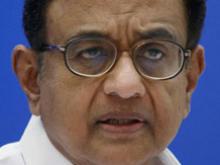The Reserve Bank of India (RBI)
on Wednesday assured the market it was closely monitoring liquidity
conditions. It added it would take appropriate action, including open
market operations, to ensure adequate liquidity was available to support
the flow of credit to productive sectors of the economy.
Experts said the statement would result in government bond yields falling further on Thursday.
Beginning with the mid-quarter review of monetary policy on Friday, RBI
began a calibrated unwinding of the exceptional measures announced since
July to restore normalcy to financial flows. Currently, RBI is
injecting about Rs 1.5 lakh crore into the system on a daily basis,
through the liquidity adjustment facility, the export credit refinance
facility and the marginal standing facility.
However, despite this, liquidity conditions have been tightening, as
shown by the hardening of yields in the government securities market,
owing to uncertainty on the government’s borrowing programme for the
second half of 2013-14 and the prospective effects of banks’ half-yearly
account closure. The seasonal pick-up in credit demand, the
festive-season-related demand for currency and the sluggish deposit
growth have also contributed to the tight liquidity.
On Wednesday, the yield on the 10-year 7.16 per cent benchmark
government bond closed at 8.79 per cent, compared with its previous
close of 8.84 per cent. Experts said the RBI’s assurance was necessary,
as two government bond auctions were scheduled for this week.
On Monday, a government bond auction for a notified Rs 15,000 crore
devolved partially on primary dealers to the tune of Rs 4,030 crore. On
Friday, RBI would auction government bonds for a notified Rs 14,000
crore.


